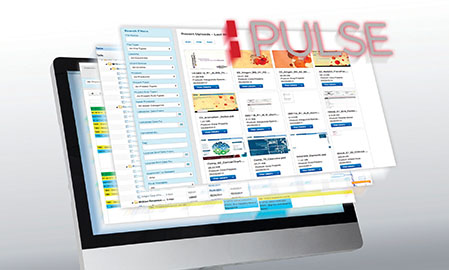Havas Life Digital morphed this year into Havas Health Software (HHS), and industry reaction to that change was unusually muted. In fact, if one were to summarize that reaction in three words, they’d be “it’s about time.”
This isn’t to say that Havas Life Digital didn’t do fine, widely respected work for its clients. Rather, observers had been wondering when Havas would formalize and celebrate its software offerings with a distinct brand of their own.
“By any name, the role of HHS is to be the digital innovation center for our network,” says Larry Mickelberg, chief digital officer for Havas Health. Adds Dan Marselle, chief of operations for Havas Health, “This has become a core part of our business… We needed a platform that reflected that.”
Unlike pretty much every one of the other 99 firms profiled in this issue, HHS started, in essence, as a project. It has its roots in a 2008 virtual learning platform called Havas Drive, which represented one of the first attempts by anyone in any Havas group to create a software platform for license by clients. “When we saw the uptake and saw other agencies try to develop competing platforms, we were like, “Ah-ha!,” Mickelberg recalls.
Havas has since created many such platforms, with the emergence of HHS representing both the culmination of those efforts and the start of a new one. With 60 employees split between two offices—in New York and Manchester, UK—HHS will work in concert with other Havas companies as well as seek engagements of its own. “That’ll be the big change for this business moving forward,” Marselle says. “But any organic growth within any company is a target, of course. The agency relationships are what’s gotten us off the ground.”
So how, precisely, does HHS plan to go about its day-to-day business? As Marselle notes, the agency will be happy to pick up the phone whenever another Havas-affiliated company or client calls. At the same time, HHS hopes to offer a degree of nimbleness that is usually not associated with the healthcare marketing business.
Take, as an example, In Touch, a formal workshop-type program that ranks among HHS’s most intriguing early offerings. “We’ll sit down [with the client] for two days. We’ll address a need or issue and try to come back with a tech solution—not necessarily a finished solution, but one that can be built out. We can prototype anything,” Marselle says.
Similarly, HHS hopes to be among the first agencies deeply engaged in emerging technologies, whether that means Google Glass, Oculus Rift or scientific visualization/animation. It also plans to be the first kid on the block to work within the cyber-contexts of the connected car and smart home.
That’s why Marselle’s greatest anxieties center as much on the brisk pace of technology change as they do on attracting a certain set number of client engagements. “Still being relatively small, we’re going to try to make the right bets on the technologies and platforms that will propel the growth of this enterprise,” he says. When asked how HHS will ensure that those bets are smart ones, he cracks, “We’ll spend a lot of time in triage and looking into crystal balls. But that’s a lot of the fun of what we do, isn’t it?”
Adds Mickelberg, on a more serious note: “Almost any agency can talk about starting a lab. Well, what we’re doing here is starting a global platform that will become a significant part of our business. This is not a hobby; this is the next generation.”
From the July 01, 2014 Issue of MM+M - Medical Marketing and Media








